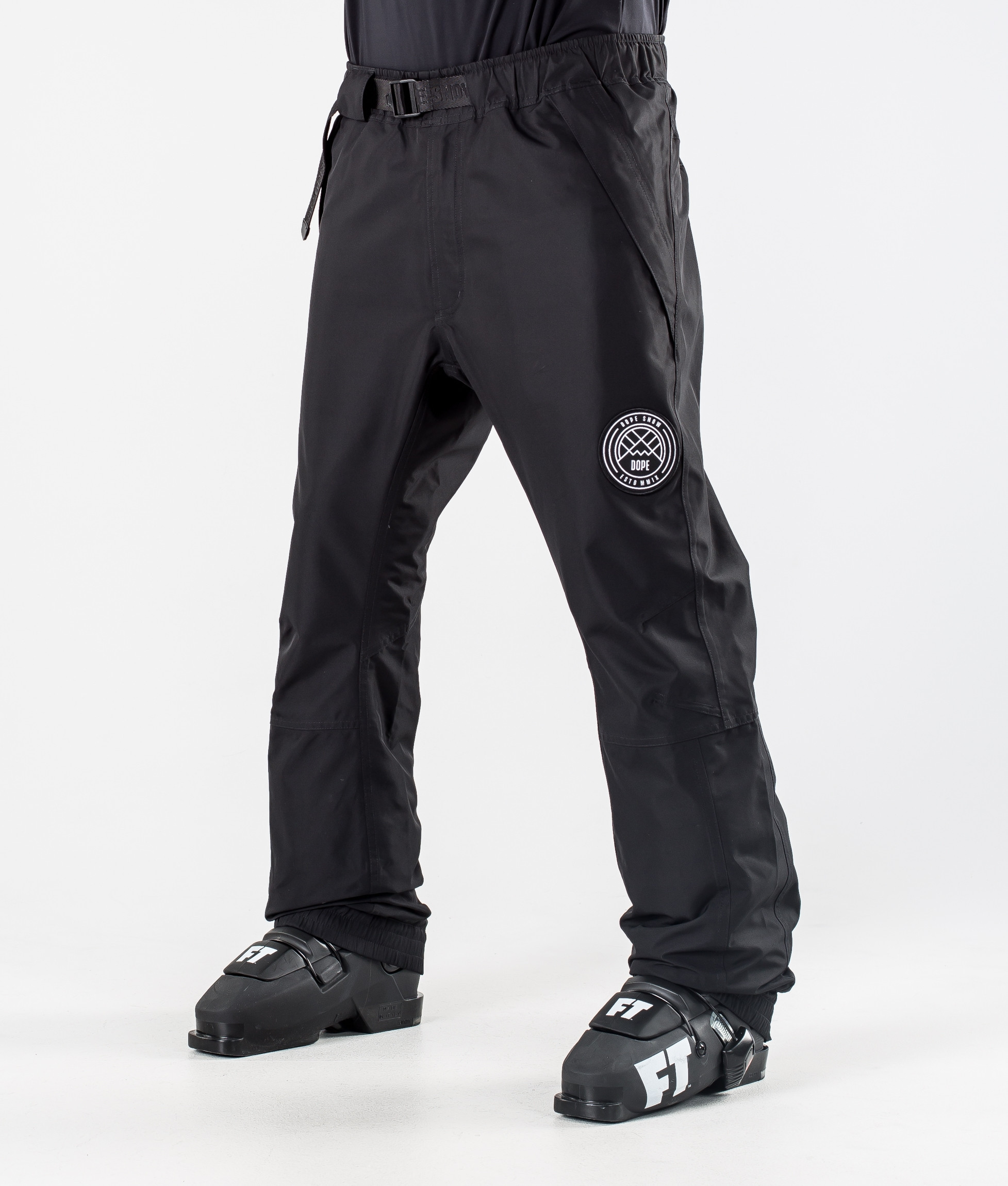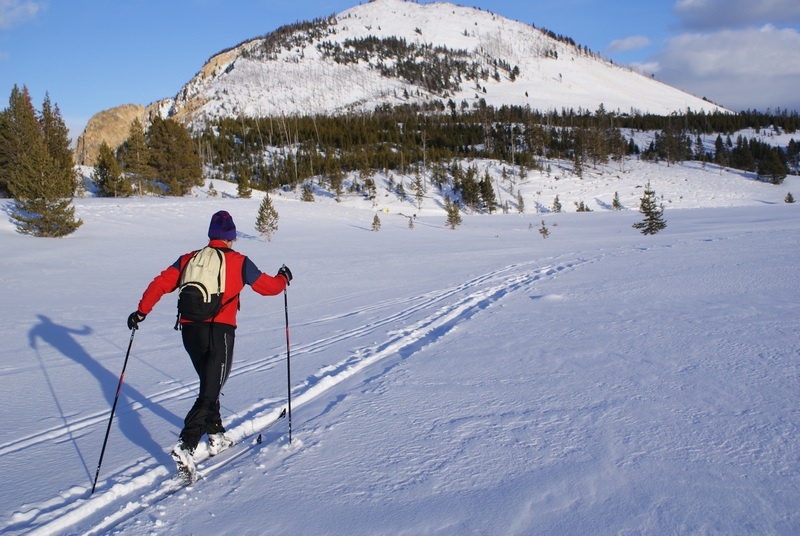
A ski lesson is an excellent way to get started in skiing. You can sign-up for one session, or a whole week. It can be a fun experience for your kids and they will love spending time with their friends.
You can enjoy many benefits from taking a lesson in ski skiing, such as:
It will teach your child safety on the slopes, which is its most important benefit. They will be guided by instructors who can help them understand safety rules such as who has right of way. They can also show them how safely to merge on trails, and prevent them from getting into dangerous situations.

They will also be capable of teaching your child the basics of snowplough turns, and how to control speed. These skills will assist them in moving from the beginner to the advanced zone of the mountain.
Your child will be able to ski confidently down the hill. They will be able take lessons either on their own or together with other friends. This is an excellent way to get your child used to skiing.
A ski lesson will allow you to experiment with different techniques and find what works for you. You will also be able to practice with your instructor at the end of each session, helping you to improve your technique.
The other benefit of a ski lesson is that it will help you to avoid injuries, especially knee injuries. This is because instructors have extensive knowledge about how to set the equipment correctly to suit your skier's abilities.

Ski lessons will allow you to experience different terrains and conditions. This will give you confidence on many slopes, and is especially helpful when the weather isn't ideal.
While a ski lesson can be expensive, it is worth it long-term. You will have more fun and be able spend more time on the pistes than sitting in a chair.
A ski lesson should be taken no less than once a winter. But, it's a good idea if you can take lessons throughout the year. If you are new to the sport, it will be better for you to start with a couple of sessions and then move on to more lessons as you gain more confidence.
FAQ
Do you ever worry about forgetting something when you travel?
Yes, I often forget stuff. This is most common on short trips. Fortunately, I always have everything, so I never run short of things.
My passport is one example. And I always check whether I have enough money when I buy tickets.
Also, my phone charger is always with I. Also, I have a small bag that I store my other items in.
These are the things that you must remember when traveling.
Traveling is a time when you are often faced with situations that require quick decisions. Prepare to be flexible.
You may be stuck someplace for hours or days, or even months. You can plan ahead to ensure you have water, food, shelter, and somewhere to sleep. However, if you don’t plan ahead, you might need to improvise.
In these situations, you will probably need to rely upon what you know best. You will have to rely on your instincts and experience to make quick decisions.
Sometimes you just can't make a choice. Sometimes, however, you will have to make do with what you have. These situations will require you to quickly adapt to the situation.
You must remain calm, be focused and take decisive action. Don't panic. Instead, be calm and focus on what you can do.
You can choose which direction you want to go if you're lost among the woods. Or if you're hungry, you can eat berries or mushrooms. Rainwater can be drank or snowmelt.
If you are tired, you can take a break. Wrap up warmly if it's cold. If you're wet, you can change clothes. Whatever you decide, you'll feel better if you stay positive.
How can you find affordable accommodations when you travel abroad?
Cheap accommodation options for travelers include hostels, hotels, guest houses, and bed & breakfasts.
Hostels can be affordable and have dorm-style rooms that guests share with their bathrooms and living areas.
Hotels are typically located in tourist areas.
Although they look similar to hostels in that they have smaller rooms and more people sharing each one, guesthouses can be quite different.
Bed & Breakfasts are very popular among budget-conscious travelers. The guests stay in their own homes and receive a full breakfast as part of the stay.
What should I put in my luggage?
Two pairs of shoes is a good rule of thumb. One pair for walking around the city and another pair for going on vacation.
A good idea is to make sure that you have enough clothes in both cases. When you fly, it is essential to bring enough clothing.
You might consider bringing along some clothing if you plan to stay longer. This will ensure that you don't feel awkward while shopping for new outfits.
Comfortable shoes will be required if you plan to take a train or bus. If you drive, make sure you have a spare set.
You should also pack lots of toiletries including shampoo, toothpaste as well as moisturizer and deodorant.
And last but not least, you'll need to take a flashlight, insect repellent, sunscreen, sunglasses, a hat, and a first aid kit.
You can put all of these items into one bag, rather than trying to stuff them in several bags. By doing so, you can save time and space.
Don't forget to bring a towel and a washcloth. They are very handy for when you need to shower after a long, tiring day.
Which countries have the best cuisine?
The food available in each country is different. It's not easy to tell which countries have the best cuisine.
But we can show you which countries serve the best food!
TripAdvisor users ranked these three countries as the top three:
-
Italy - Italy has been voted the number 1 destination by TripAdvisor users thanks to its fantastic food.
-
France - France was ranked second because of its rich culture and cuisine.
-
Spain - Spain was third due to its beautiful beaches and great weather.
Statistics
- Pack sweaters, jackets, and underwear in reusable compression bags creating up to 75% more space in your luggage. (wikihow.com)
- Between the ages of 11 and 13, kids, or tweens, will likely want some autonomy but also need boundaries. (travelandleisure.com)
- Alcoholic beverages with more than 24% but not more than 70% alcohol are limited in checked bags to 5 liters (1.3 gallons) per passenger and must be in unopened retail packaging. (tsa.gov)
- They're also likely to offer babysitting services, in case you'd like to have dinner one night after 7 p.m. (travelandleisure.com)
- You can use compression sacs or cubes to reduce the volume of your clothes by up to 80%—this is especially convenient for bulky items such as sweaters and jackets. (eaglecreek.com)
External Links
How To
How to Enjoy a Weekend Vacation
Weekends away are a time for reflection, relaxation and fun. It is a time for relaxation, rejuvenation, and disconnect.
This is also a time for reflection on your priorities and how you spend your weekends. If you're lucky enough to have a job that allows you to travel, you might even find yourself reflecting on what makes working such a rewarding experience.
Whatever reason you have for taking a vacation from the office, plan plenty activities.
You will probably want to spend time alone, but still enjoy the company and friendships back home. But, it's equally important to remain active.
You can explore local attractions, go hiking, camping, or simply enjoy the sunshine while on the road.
Also, make sure to allow yourself enough time to recover from each activity. You're likely to burn yourself out if the pace is constant. So plan ahead and leave room for downtime.
When you land safely, you'll likely look forward to relaxing. Soon you'll be aching to get on the ground again.
Don't fall behind. Make sure you set aside time daily to catch up on emails and projects.
You will feel more connected, and less overwhelmed. Additionally, you won’t miss out on any potential growth opportunities for your business.
Last but not least, don't be afraid of asking for help. You may find yourself stuck or unsure of the next step.
If you need advice, contact someone at your workplace or a friend. And remember, no matter how busy life gets, you always have time for a quick chat with loved ones.